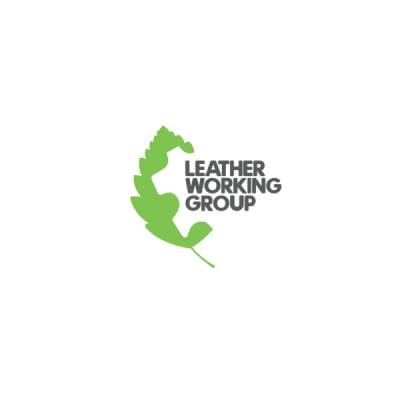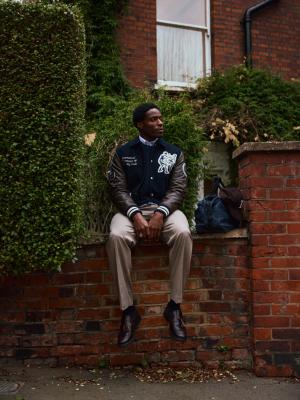Material Strategy
Material choices mainly contribute to our business’ adverse effects on people and our planet. This is why we have developed a material strategy outlining the areas in our transformation towards a more responsible company. To better understand our process and goals, we have broken down our approach to the three following regions; chemicals with care, recyclable fiber mix, and involvement of more responsible materials.
Creating clothes with high performance can have an environmental impact, leaving a trace on our environment. We work towards neither the environment nor the health and well-being of our customers are affected by such. Chemicals from clothing may contaminate water or cause allergic reactions when using the garment. Still, we strive to adopt a precautionary approach to the use of chemicals and ensure that there are, in fact, no chemical residues in the clothes that can cause these effects. The application of fibers is another essential element of our responsible development. To increase the possibility of recycling and hence minimize extracting new virgin materials, we work to improve our use of clean fibers starting throughout future collections. In addition, we also introduce organic cotton and increase the application of more responsible fibers such as Tencel and linen.
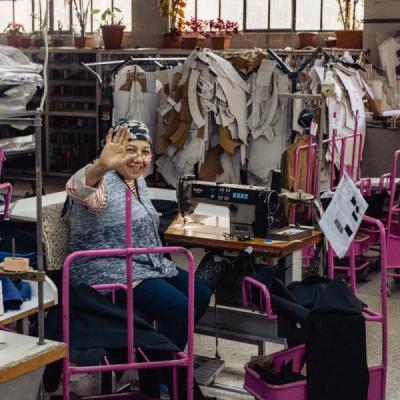
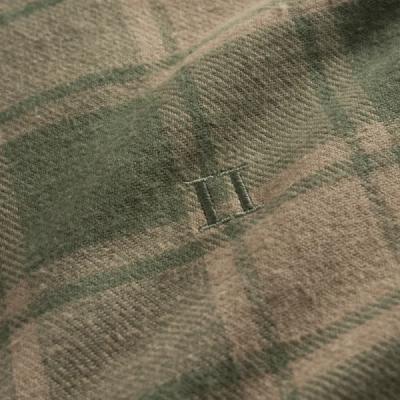
Design for conscious consumption
Design for conscious consumption is about minimizing the pressure on virgin materials by maximizing the use of resources and ultimately reducing the waste of applicable fabrics. This demands a transition in our sourcing and design process, as the primary task is to investigate which and where the materials can be procured and how the design is conducted.
No matter how responsibly a garment is produced and delivered to the consumer, the responsibility of the product plunges if it ends up in landfills shortly after purchase or if it is left in the wardrobe un-used or unloved. The design style of Les Deux has always focused on clean lines, classic aesthetics, and comfort. The design is meant to last and to be flexible, which ultimately displays a timeless design and an ability to combine with styles from previous and future collections.
These slow consumption characteristics for longevity and durability significantly contribute to a responsible use phase, where the utility value of the product is maximized – as a backlash against the fast-fashion practice dominating the industry.
Responsible supply chainmanagement
To us, responsible supply chain management is about providing fair, safe, and legal working conditions for everyone with whom we do business and being able to account for our operations and the impacts we cause throughout our supply chain. This demands a fundamental understanding of the necessity within the organization and the overall purpose of this transition. The immense web of processes coherent with a more responsible supply chain management will not happen overnight. However, we will take responsibility for our activities by implementing proper due diligence at our production sites. We are mapping the possibilities of creating a trustful network of experts within this area who can conduct professional audits at our manufacturers and report back to us to ensure that they comply with the contracts.
To succeed, we will increasingly monitor our supply chain and increase overall transparency. Our code of conduct strongly supports these initiatives, focusing on safe production, anti-slavery, and anti-child labor. Suppose we detect any breach of contract. In that case, we will immediately initiate a crisis plan and investigate all the associated parameters to solve the issues as fast as possible and in the best interest of all parties. Read more.
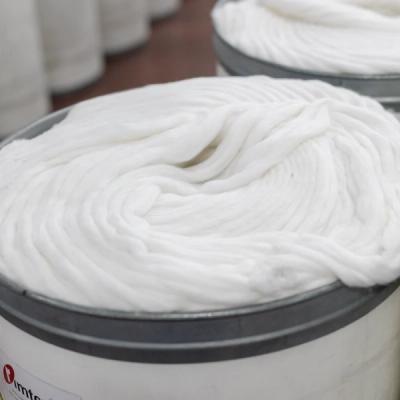
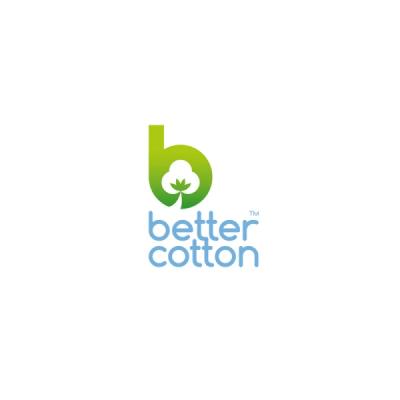
Better Cotton
We are proud members of Better Cotton. It is a natural step in our pursuit of a more responsible future.
Through Better Cotton and its Partners, farmers receive training on how to use water efficiently, care for the health of the soil and natural habitats, reduce the use of the most harmful chemicals and apply decent work principles.
Though Better Cotton itself is not physically traceable regarding the end product, Better Cotton farmers benefit from the demand for Better Cotton in the same volumes as those sourced.
An essential factor in Better Cotton is the improvements in the socio-cultural situation, as Better Cotton strives for a fairer wage for their farmers, allowing them to better provide for their families. As such, Better Cotton not only focuses on environmental and economic responsibility but also on farmers' social impact.
We are committed to sourcing 70% of our cotton as more sustainable cotton by 2025. More sustainable cotton includes Better Cotton, organic and recycled cotton.
To read more visit: bettercotton.org/learnmore
Leather Working Group
We make our garments and accessories with leather from tanneries certified by Leather Working Group, or LWG.
LWG is a not-for-profit organization that aims to reduce the environmental impact of leather production around the world while promoting best practices and gradually evolving the industry.
They audit tanneries around several different responsibility and social criteria, which means that tanneries need to monitor and achieve set goals for their air and noise emissions and water use to get certified. There’s also a grading system around how much renewable energy they use, the traceability of raw materials, and the chemicals they use.
The LWG auditing process also assesses whether tanneries are complying with health and safety procedures, to reduce the risk of workers getting injured.
To learn more about Leather Working Group and their mission, visit leatherworkinggroup.com/our-impact/
